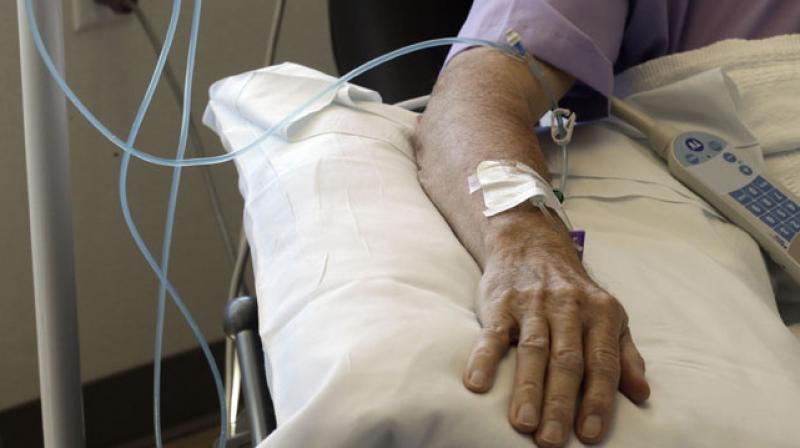Personalised treatment is way forward for cancer cure: experts

New Delhi: Personalised and "evidence-based" treatment rather than a generic approach is the "way forward" for cancer cure across the world, including in India, international oncology experts have said.
Cancer experts from around 15 foreign countries had gathered in New Delhi for a global conference on head-neck cancer, which ended last evening.
During the four-day event, they exchanged domain knowledge and discussed ways to develop a universal model for cancer management, besides sharing the new technological developments in the field.
"In India head-neck cancer is more common than in the US where lung cancer and other cancer incidences are more. During a trial at our centre, we realised the tumour mutation was different in different cases. We did a genetic profiling and the treatment was given based on mutation."
"This trial and the general feel among cancer experts now is that the model of treatment should move from generic one to personalised, precision-based one. And, it holds for across the world, including India," says Nancy Lee, Vice-Chair at the Department of Radiation Oncology, Memorial Sloan Kettering Cancer Center (MSKCC) in New York.
During the conference, organised by the International Federation of Head and Neck Oncologic Societies (IFHNOS) and Foundation for Head-Neck Oncology (FHNO), Indian experts presented research papers on two days, while foreign experts did on the rest two days.
"The event has given the impetus to start new studies to decide what is the best treatment and the way to do cancer management together."
"Lot of cancer cases in the US were detected at early stage, because of patient education and availability of care," Professor of Surgery at MSKCC, Ashok R Shaha said. "The key words now are personalised, evidence-based and precision, when it comes to treatment," he said.
Claudio Cernea, Professor of Surgery in the Department of Head and Neck Surgery at the University of Sao Paulo's Medical School, says, "It has to be a multi-modality treatment."
"We need to reduce the aggressiveness of the treatment. The Tumour Board has a team of professionals, and it is important that we take special decision, eg in cases of thyroid cancer surgeries," he said.
Carol Bradford, Professor of Otolaryngology at the University of Michigan's Medical School believes, "While there may be epidemiological differences for India and the West, it comes almost to the same care."
"And, knowledge and skill of doctors here in India is very impressive. Also, oral cancer is by far the highest in India, so there is lot to learn from here." According to experts, the annual incidence of head and neck cancers worldwide is more than 550,000 cases, while in India, out of the 11 lakh incidences a year of cancer overall, 2.5-3 lakh are of head and neck cancer.

